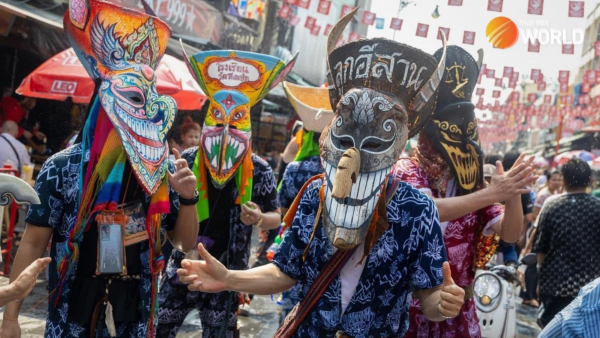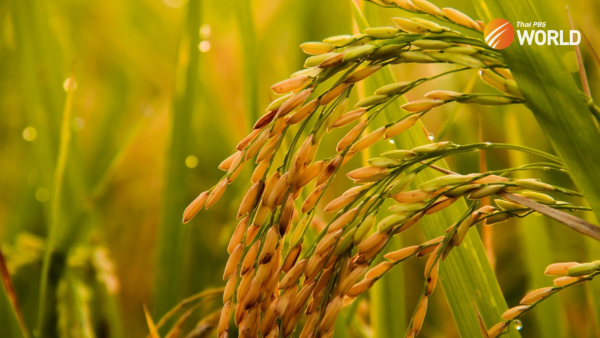Superstitious beliefs play a crucial role in Thai consumers and business decisions

Thais don’t only rely on charts and grafts when it comes to financial decisions, but also lucky charm or superstitious objects to encourage them to take risks.
Of course, superstitious beliefs exist in every part of the world. However, Thais have a tendency to demonstrate superstitious practices than others, according to the findings of a research by Dr. Theeranuch Pusaksrikit, a lecturer of Chulalongkorn Business School, Chulalongkorn University.
According to her research paper on superstitious beliefs in risk-taking behaviors of Thai consumers, Dr. Theeranuch found that superstitious beliefs play an important role in Thai consumers and business decisions.
“Some feel more confident to take business risks after they experienced a superstitious incident,” she told ThaiPBS. The findings came from her study jointly researched with Sydney Chinchanachokchai and Siwarit Pongsakornrungsilp.
The team of researchers observed how individuals would react when they were given what was described as magic pen. The study shows that passive superstitious individuals feel more urge to take risks after they received a magic pen.
The experiment shows that exposing passive superstitious individuals to superstitious-related objects such as a lucky charm may lead to higher confidence in them, which can result in engaging in riskier behaviors such as placing higher bets in gambling and investing in high-risk stocks.
The study also finds that the magic pen does not considerably change the behavior of proactive superstitious individuals because – even in the case where they were not given a magic pen – they would try to find another superstitious incident on their own to boost their confidence when taking risks any way.
Proactive superstitious believers are individuals who seek control over the situations around them. In contrast, passive superstitious beliefs involve circumstances in which the outcomes lie beyond their control.
Find the right number
“Thais tend to look for superstitious incidents to help them make big decisions than others,” said Theeranuch.
The most obvious example is how credulous Thai lottery gamblers look for the lottery numbers to bet.
“People in other countries may simply bet on their birthdate or car plate number. But some Thai lottery gamblers go as far as looking for a pregnant lottery seller because they believe a pregnant woman can bring them luck.
Moreover, some spend several hours rubbing a tree’s gnarly bark to find the lucky number.”
Superstitious beliefs play an important role in Thai consumer and business decisions. While Chinese believe that number 8 is auspicious, Thais believe that 9 is a lucky number because it is pronounced similar to the word moving forward. Hence, the license plate ending with 9999 received the highest bid in the license auction. Many startup business owners consult with a numerologist before setting a store or business.
Some marketers have learned to capitalize on this trend. For example, a pen company recently launched a set of six pens by highlighting different emotional attachment such as one color will enhance the user’s success, one for love and one for luck.
Instead of buying one pen, some customers scoop the whole collection because they want to have all good lucks. (Note: the pen is not related to the magic pen that Dr. Theeranuch used in her research).
Marketing tactics
Many other sellers use hard-core marketing campaigns such as advertising what they described as a sacred object on national televisions or social media.
“These objects may boost people’s confidence when they need to take risks. However, our study suggests that individuals can also be easily influenced by marketing campaigns related to superstition. When consumers go through stages of uncertainty and have to make decisions, they do not always make rational evaluations,” she said.
It is possible that superstitious consumers may be lured or be taken advantage of by some marketing campaigns or other risky businesses. For example, they could be deceived into purchasing defective products that are associated with superstition.
Thus, public policy needs to be aware of superstitious-related marketing campaigns, suggested Dr. Theeranuch.
It is ironic that even as Thais are entering into the digital age, the trend is likely to be more pronounced. “People become more vulnerable and they need a material object to boost their confidence,” noted the researcher
The research findings also show that it is possible that the more the adolescents and low-income consumers become proactive superstitious believers, the more they have put their faith in risk-taking behaviors because proactive superstitions can increase their feeling of hope and being in power and control.
“This study evidences how superstitious individuals can become the victims of embedding risky activities into their everyday life”, Dr. Theeranuch concluded.






